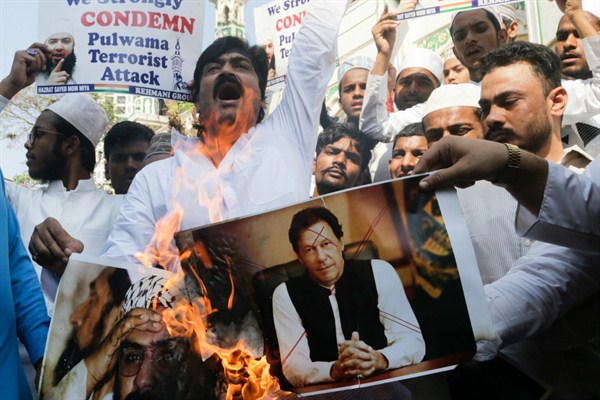Pakistani authorities announced last week that they had arrested 44 people affiliated with violent extremist groups. Among those taken into custody, according to Pakistan’s interior minister, were two relatives of the founder of Jaish-e-Mohammed, the terrorist group that claimed responsibility for the attack in Kashmir last month that killed 40 members of India’s security forces. But it is too early to know whether this means Islamabad is finally taking meaningful steps to crack down on the militant organizations it has long harbored, cautions Michael Kugelman, deputy director of the Asia Program and senior associate for South Asia at the Wilson Center. In an interview with WPR, he explains the true motives behind last week’s crackdown.
World Politics Review: How significant is last week’s wave of arrests targeting extremist groups?
Michael Kugelman: The arrests are significant in that they represent a large-scale crackdown on Pakistani terrorist organizations that, in some cases, have longstanding ties with the Pakistani state. But what’s most significant is the scale of the crackdown—it’s been quite some time since Pakistani authorities acted against so many militants, and their facilities, in one fell swoop.

